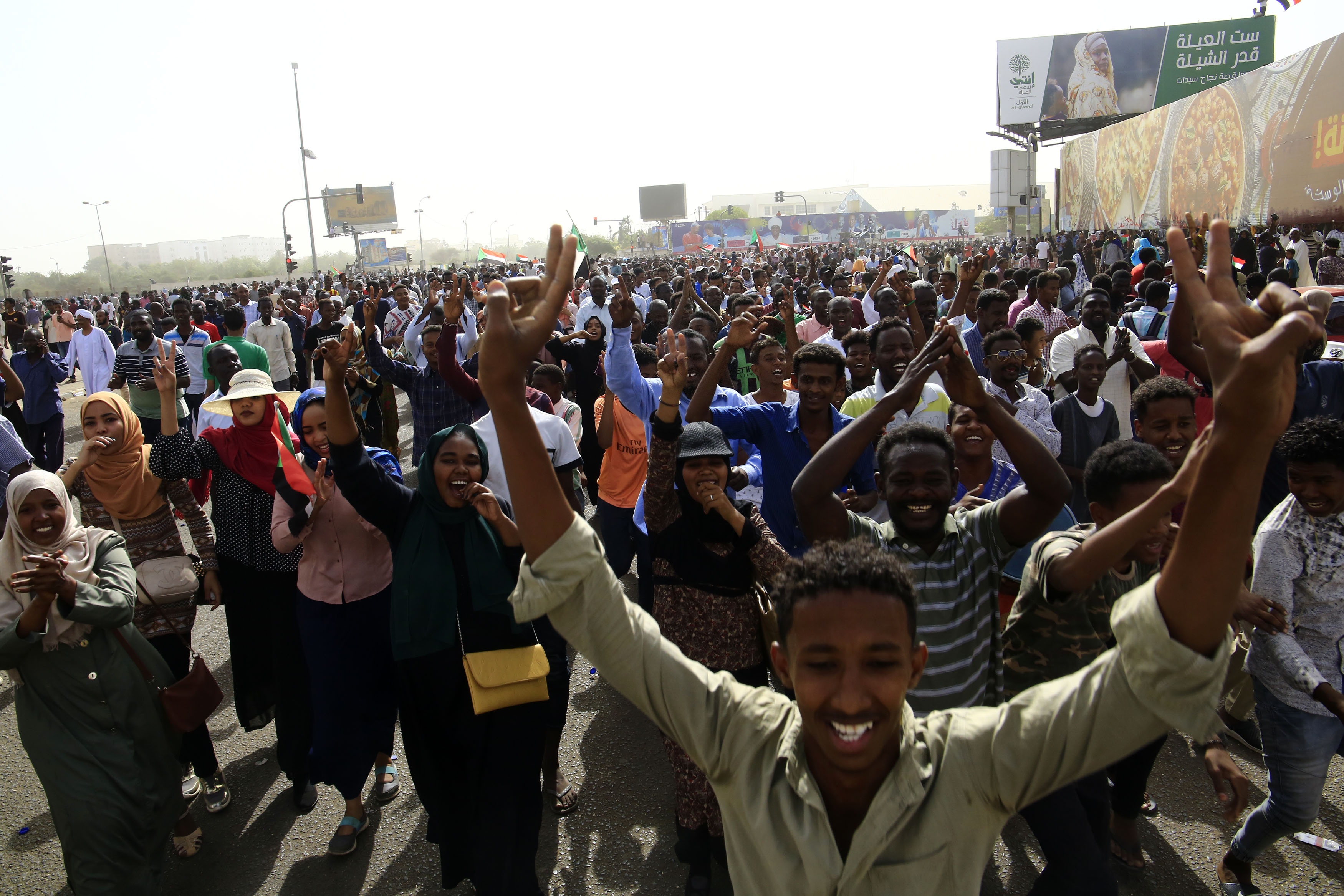Algeria and Sudan demanding change
- By Hisham Abu Bakr Metwally
 0 Comment(s)
0 Comment(s) Print
Print E-mail China.org.cn, April 16, 2019
E-mail China.org.cn, April 16, 2019

Both Sudan and Algeria have recently witnessed major demonstrations demanding change and a better future.
The Sudanese people have been protesting since December 19, 2018, declaring their rejection of the economic measures passed by President al-Bashir.
The high prices and deteriorating economic situation in Sudan have led to widespread public outrage demanding President al-Bashir's resignation.
In 2010, Sudan was considered the 17th fastest growing economy in the world and the rapid development of the country largely came from its oil profits.
However, with the secession of South Sudan from Sudan in 2011, income from oil declined. This comes as no surprise since South Sudan contains over 80% of Sudan's oilfields. This development significantly affected Sudan's growth rate and brought about inflation, which hit a high of 22% in 2015.
The agricultural sector remains Sudan's most-important production sector and employs 80% of the workforce. The sector contributes 39% of the country's GDP, but most farms still rely on rain for their crops and therefore are highly susceptible to drought.
Sudan has suffered from instability for long time, and a myriad of factors have caused much of the population to live at or below the poverty line for years.
Thousands of Algerians took to the streets in February after Abdelaziz Bouteflika announced his intention to run as president for the fifth term. They claimed that Bouteflika should make room for others who can bring better socio-economic development to the country.
The Algerian economy is reliant on petroleum and its crude oil production stands at around 1.1 million barrels a day. Having the 10th largest reserve of natural gas in the world, Algeria is also a major gas producer, and the sixth largest gas exporter globally.
Oil and gas production is the backbone of the economy, accounting for roughly 60% of its budget revenues, 30% of GDP, and over 95% of its export earnings.
The Algerian government has tried to develop its industrial sector in a bid to diversify its economy. It is trying to attract foreign and domestic investment outside the energy sector, but its progress hasn't been fast enough to stem the high youth unemployment rate or address housing shortages.
Are the crises in Algeria and Sudan an extension of the Arab Spring revolutions? Yes, we can say that the Arab Spring uprising has not yet ended. The first wave of Arab Spring revolutions, starting from Tunisia, and followed by Egypt, Libya, Syria and Yemen, did not actually involve all the Arab countries.
The ongoing turmoil right now in Algeria and Sudan, where both presidents were forced to relinquish power and resign, can be actually seen as the second wave of Arab Spring revolts.
What caused the Arab Spring revolutions?
The answer is the worsening economic situation. Most Arab countries suffer from the absence of real economic reform, which has led to widespread unemployment among young people as well as a lower quality of public services in general, especially in the areas of education and health.
In the case of Sudan, the spread of corruption and bribery, and the control of wealth by a few businessmen and associates of President al-Bashir has incurred the wrath of the Sudanese people. They want change to bring about a real economic renaissance that guarantees them a dignified life as well as more equal distribution of wealth.
The demands made by the Sudanese and Algerian peoples are fair and rational. The two peoples have used peaceful means to express their demands and have sought to preserve public and private property.
The leaders who continued to govern both their countries for many years did not want to relinquish their power.
The Arab people have been determined to fight for the desired reforms and level of openness, which they have not seen in many decades.
What's next after Bouteflika's resignation and al-Bashir's ouster?
The two countries have entered a transitional period pending new presidential elections.
In the case of Algeria, the interim president, Abdelkader Ben Saleh, signed a decree on Wednesday evening setting July 4 as the date for holding the presidential election.
In Sudan, Defense Minister Awad Mohamed Ahmed Ibn Auf on April 11 was sworn in as head of the transitional council. He said that a military council would be formed to run the country during a transitional period of two years, during which new presidential elections would be prepared.
He indicated that the length of the period was to give different contesting parties sufficient time to prepare themselves for the elections. Moreover, he also announced the suspension of the interim constitution of the Republic of Sudan, which means a new constitution will eventually have to be created.
I hope that the transition periods of the two countries will go well and stability will be achieved in the two nations so that their people can work to achieve a better future.
Hisham Abu Bakr Metwally is the first economist researcher with the Egyptian Ministry of Foreign Trade and Industry.
Opinion articles reflect the views of their authors only, not necessarily those of China.org.cn.
If you would like to contribute, please contact us at opinion@china.org.cn.






Go to Forum >>0 Comment(s)